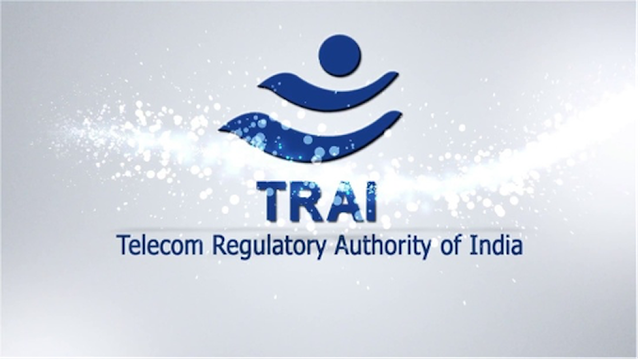
India! The Telecom Regulatory Authority of India (TRAI) has sent ripples
through the industry with a proposal that could shake up how you pay for your
phone number. This article dives deep into TRAI’s suggestion for phone number
keeping fees, exploring the reasoning behind it, potential implications for
users, and alternative solutions.
TRAI’s Take: Phone Numbers as
Valuable Resources
TRAI views phone numbers as a
finite public resource, similar to radio spectrum. With the rise of mobile
technology and Internet of Things (IoT) devices, the demand for unique numbers
is surging. TRAI argues that implementing phone number keeping fees could:
- Encourage Efficient Allocation: By placing a
value on numbers, operators might be more discerning when issuing them,
preventing unnecessary hoarding. - Boost ARPU (Average Revenue Per User): Telecom
companies could leverage these fees to increase their revenue, potentially
leading to network improvements. - Align with Global Practices: Several
countries, like Singapore and Australia, already have phone number
charges, and TRAI believes India should follow suit.
How You Might Be Impacted
The proposal is still under
discussion, but TRAI has suggested three ways phone number keeping fees could
be implemented:
- One-Time Fee: A one-off charge for each phone
number you hold, including mobile and landline. - Recurring Fee: An annual or monthly charge
attached to your phone plan for keeping your existing number. - Vanity Number Auctions: Premium,
easy-to-remember numbers could be auctioned to the highest bidder.
The exact impact on users depends
on the chosen method. A one-time fee might be minimal, but recurring charges
could add up over time. Vanity number auctions would likely only affect those
seeking specific, memorable digits.
Public Concerns and Potential
Solutions
The proposal has sparked debate,
with some key concerns emerging:
- Increased Burden on Consumers: Many argue that
adding another fee to phone bills would be a burden, especially for
low-income users. - Impact on Number Portability: If switching
providers becomes more expensive due to number fees, it could discourage
competition and innovation.
TRAI is considering these
concerns and has proposed penalties for operators holding onto unused numbers.
This could incentivize them to release inactive numbers back into the pool,
mitigating potential shortages.
The Road Ahead: Transparency
and Public Consultation
TRAI has invited comments from
stakeholders and the public on the proposal. This is your chance to voice your
opinion! Here’s how you can participate:
- Visit the TRAI website: Check for updates
and official documents related to the consultation process. - Submit written comments: TRAI accepts
written submissions outlining your views on the proposal. - Participate in online forums: Engage in
discussions with other users and experts about the potential impact of
phone number keeping fees.
Background and Rationale
The proposal is based on the
understanding that phone numbers are not infinite and that the current allocation
system is not efficient. TRAI has highlighted that the Department of
Telecommunications (DoT) has managed the allocation of numbering resources in
India, with significant revisions to the national numbering plans in 1993 and
2003 to accommodate the growing telecommunications sector. However, the current
scenario requires a more robust framework to meet evolving needs effectively.
Key Points
Phone Numbers as a Valuable
Public Resource: TRAI considers phone numbers a valuable public
resource that is finite. The proposed charges might be imposed on mobile
operators, who could pass these costs to users.
Global Examples: Several
countries, including Australia, Singapore, Belgium, Finland, the UK, Lithuania,
Greece, Hong Kong, Bulgaria, Kuwait, the Netherlands, Switzerland, Poland,
Nigeria, South Africa, and Denmark, already impose fees for phone numbers,
either on mobile operators or subscribers.
Charging Methods: TRAI is
considering several charging methods, including a one-time charge per number,
an annual recurring charge for each numbering resource allocated, or
centralized auctions for vanity or ‘VIP’ numbers.
Penalties for Inefficient Use:
TRAI is also considering imposing penalties on operators holding unused number
resources to ensure efficient utilization. For instance, a subscriber with dual
SIMs may not use one for an extended period, but the operator retains the
number to maintain its user base.
Impact on Users: The
proposed fees could increase the cost for users, as telecom companies may pass
on the charges to subscribers. This could lead to a tiered pricing system,
where users are charged based on the number of numbers they use.
Industry Response
Industry executives have
expressed concerns that imposing charges on telecom companies for numbering
resources will not effectively address the issue of inefficient use. They
suggest defining ‘inactive connections’ and establishing a cut-off period for
reallocating these numbers.
Timeline and Next Steps
The consultation paper invites
stakeholders to provide input on the proposed revisions, with a deadline for
comments and counter-comments set for early July 2024. The TRAI will then
submit its recommendations to the government, which will cover the aspect of
ever-shrinking numbering resources in the era of 5G, machine-to-machine
communications, and Internet of Things
This is a developing story,
and TRAI’s final decision will depend heavily on public feedback. By staying
informed and participating in the consultation process, you can help shape the
future of phone number management in India.




